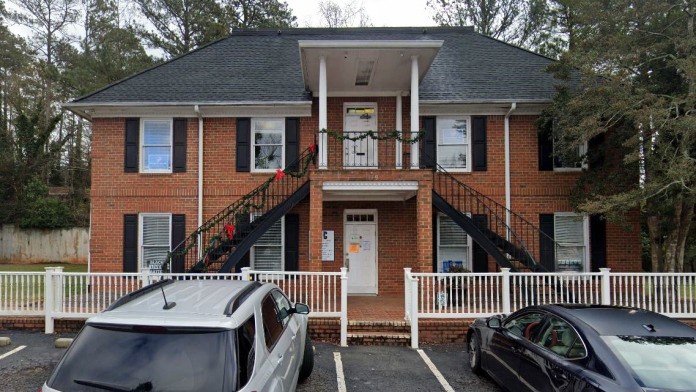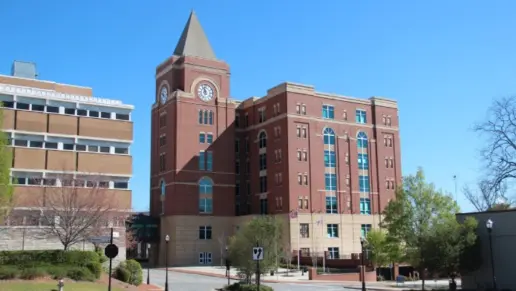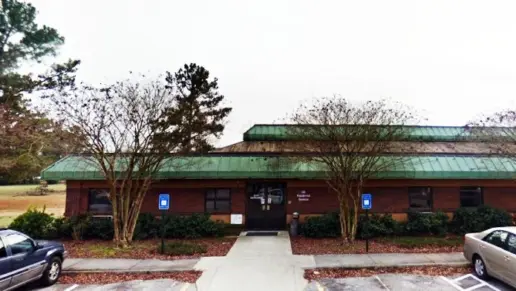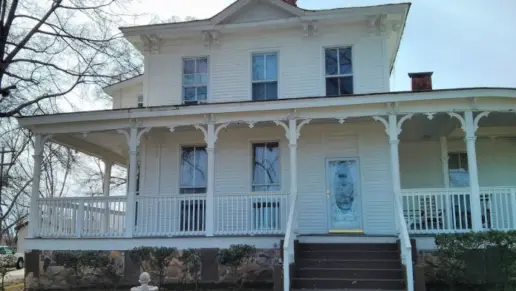About Alliance Recovery
Alliance Recovery Center is an outpatient methadone clinic in Athens, Georgia, that offers addiction treatment for adults. The primary treatment provided at this facility is medication-assisted treatment (MAT). The medications they use to help reduce withdrawal symptoms are methadone and buprenorphine.
They combine this treatment with peer support, individual and group therapy sessions and other support services. Alliance Recovery Center has a team of licensed therapists who work with clients to uncover the underlying causes of their addiction. The facility will help clients become less dependent on medication as a tool for not relapsing if that’s what they desire. Additional team members on staff are nurses, doctors and pharmacists who monitor medication usage and overall health.
When patients first begin MAT, clients will be expected to visit the clinic six days a week to receive counseling and medication. As patients make progress in their treatment, the frequency of clinic visits is reduced and they can start being provided take-home medication. Individuals can choose to continue taking medication to prevent relapse or get assistance with becoming less dependent on the medication. The length of treatment varies, and the clinic believes it’s best not to enter treatment with any timeline in mind.
All clients will have a primary counselor assigned to them. While group counseling sessions are optional, individual therapy sessions are mandatory. The clinic will not charge any additional cost for participating in these services. Group counseling sessions discuss topics that can be helpful for recovery, such as life skills, stress management and relapse prevention. I like that Alliance Recovery Center offers consultation for other health concerns a client may have other than addiction. Every individual who is admitted for treatment will receive a physical exam.
Latest Reviews
Rehab Score
Gallery

Location
Other Forms of Payment
Self-pay involves paying for treatment out of your own pocket. You can use savings or credit, get a personal loan, or receive help from family and friends to fund your treatment. If you don't have insurance or your insurance plan doesn't cover a specific program, self-pay can help ensure you still get the care you need.
Private insurance refers to any kind of healthcare coverage that isn't from the state or federal government. This includes individual and family plans offered by an employer or purchased from the Insurance Marketplace. Every plan will have different requirements and out of pocket costs so be sure to get the full details before you start treatment.
Medicaid is a state based program that helps lower-income individuals and families pay for healthcare. Medicaid covers addiction treatment so those enrolled can use their coverage to pay for rehab. When a program accepts Medicaid the client often pays very little or nothing out of their own pocket.
Medicare is a federal program that provides health insurance for those 65 and older. It also serves people under 65 with chronic and disabling health challenges. To use Medicare for addiction treatment you need to find a program that accepts Medicare and is in network with your plan. Out of pocket costs and preauthorization requirements vary, so always check with your provider.
Addiction Treatments
Levels of Care
Treatments
Opioid rehabs specialize in supporting those recovering from opioid addiction. They treat those suffering from addiction to illegal opioids like heroin, as well as prescription drugs like oxycodone. These centers typically combine both physical as well as mental and emotional support to help stop addiction. Physical support often includes medical detox and subsequent medical support (including medication), and mental support includes in-depth therapy to address the underlying causes of addiction.
Substance rehabs focus on helping individuals recover from substance abuse, including alcohol and drug addiction (both illegal and prescription drugs). They often include the opportunity to engage in both individual as well as group therapy.
Programs


Clinical Services
Group therapy is any therapeutic work that happens in a group (not one-on-one). There are a number of different group therapy modalities, including support groups, experiential therapy, psycho-education, and more. Group therapy involves treatment as well as processing interaction between group members.
In individual therapy, a patient meets one-on-one with a trained psychologist or counselor. Therapy is a pivotal part of effective substance abuse treatment, as it often covers root causes of addiction, including challenges faced by the patient in their social, family, and work/school life.
Life skills trainings involve all the skills a person must have in order to function successfully in the world. These include time management, career guidance, money management, and effective communication. Truly successful addiction recovery is based on the ability to not only live substance-free, but to thrive. Life skills teaches the practical necessities of functioning in society, which sets clients up for success in life, and therefore sobriety.
Amenities
-
Private Setting
Accreditations

The Commission on Accreditation of Rehabilitation Facilities (CARF) is a non-profit organization that specifically accredits rehab organizations. Founded in 1966, CARF's, mission is to help service providers like rehab facilities maintain high standards of care.
CARF Accreditation: Yes
Contact Information
119 Sycamore Drive
Athens, GA 30606


